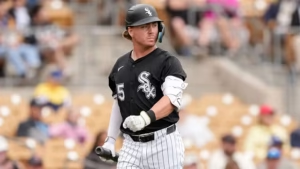
Coventry City struck gold with academy star who made the club £6m from Liverpool.
Liverpool’s £6m acquisition of 20-year-old Chris Kirkland was one of the most talked-about transfers in the early 2000s. But just how did a relegated Coventry City manage to make their young shot-stopper among the most expensive goalkeepers in British league history?
Kirkland was once one of the hottest English prospects between the sticks, tipped for national stardom at a time when an aging David Seaman’s number one spot was about to become vacant.
It is a known fact that goalkeepers on average tend to develop later than their outfield counterparts, so when a keeper manages to collect regular Premier League minutes as a teen, their stock understandably skyrockets.

At 43-years-old, Kirkland has hung up his gloves, and his baseball cap, for good. Although having last played there over 20 years ago, he remains a fond figure in the city of Coventry, as he is still to this day one of their most lucrative academy graduates.
Rise Through the Coventry Academy
coventry city fans
Kirkland was born in nearby Barwell, Leicestershire in 1981 and joined the Coventry City youth setup in the mid-1990s following rejection from Blackburn Rovers.

Standing at 6ft 5″, his towering presence and natural athleticism meant that, if he were disciplined enough, he had the perfect god-given attributes to become a top keeper. He quickly progressed through the ranks, and by the late 1990s, was knocking on the door of the first team.
In 1999, at just 18 years old, Kirkland made his senior debut for Coventry in a League Cup tie, a 3-1 win against Tranmere Rovers, a team that had put five past them just a week prior.
Standing Out in a Relegation Campaign
The 2000-01 Premier League season was a difficult one for Coventry City. Under manager Gordon Strachan, the club struggled to maintain form and ultimately faced relegation after 34 consecutive years in the top flight. Despite this, Kirkland’s performances stood out.

It’s easy to forget in modern day that Coventry City were absolute mainstays in the top flight. This was the Sky Blues’ first taste of relegation since 1958, it was a torrid season for all concerned with the club, except maybe of course, for young Kirkland.
Kirkland took over as Coventry’s number one goalkeeper during this turbulent season. He played 24 league games, making 91 saves, showing flashes of brilliance in difficult circumstances. His agility and reactions were impressive, not only for such a young goalkeeper, but one of his stature too. He gained valuable experience handling extremely high-pressure situations. Though Coventry’s defense was often porous, Kirkland’s performances were regularly highlighted, and he started attracting the attention of bigger clubs.

In particular, his display against Liverpool in a 2-0 loss at Highfield Road caught the eye of Liverpool’s scouting team. It was clear that if Kirkland had the potential to thrive at the highest level in an awful side, imagine what he could do in a title-challenging one.
Kirkland’s Transfer to Liverpool
Having just completed a 63-game behemoth of a season, winning every cup competition available, Gérard Houllier was looking to bolster his squad in pursuit of further glory.
In August 2001, Liverpool paid £6 million for Kirkland, making him the most expensive British goalkeeper at the time.

This was a huge coup for Cov, who in a pre-parachute-payment world, were struggling financially with their recent lack of Premier League status.
Bizarrely, however, Kirkland was not to be the only big-money goalkeeper signed by the Reds that term, as Jerzy Dudek joined just days afterwards for a similar fee.
Jerzy’s seniority and eventual heroics meant that Kirkland was, and continued to be, backup keeper for almost the entirety of his Liverpool career. He made a total of 45 appearances for Liverpool in five years before being shipped out to Wigan Athletic, where he would play arguably his best football and secure a place in the 2006 World Cup squad, as well as a solitary England cap.

A stifled career
In another life, Kirkland might have stayed in the West-Midlands and solidified club-legend status by helping them return to the Premier League, but for that money at that time, it was simply too good to refuse.
Chris Kirkland’s move from Coventry to Liverpool was filled with promise, but unfortunately, injuries and circumstance hampered his ability to fulfill that potential at the highest level.

Regardless of what happened in his career, the money he gained the club at such a crucial time may just have saved his boyhood club from disappearing out of the Football League altogether.







